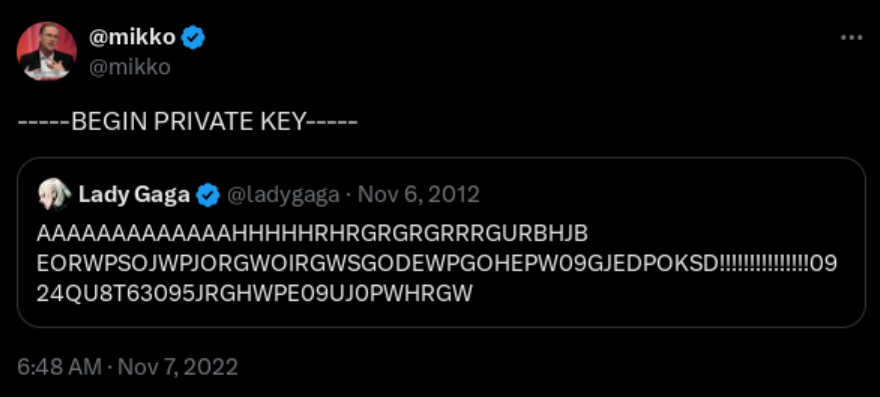this post was submitted on 20 Jul 2024
1632 points (98.6% liked)
linuxmemes
21859 readers
685 users here now
Hint: :q!
Sister communities:
Community rules (click to expand)
1. Follow the site-wide rules
- Instance-wide TOS: https://legal.lemmy.world/tos/
- Lemmy code of conduct: https://join-lemmy.org/docs/code_of_conduct.html
2. Be civil
- Understand the difference between a joke and an insult.
- Do not harrass or attack users for any reason. This includes using blanket terms, like "every user of thing".
- Don't get baited into back-and-forth insults. We are not animals.
- Leave remarks of "peasantry" to the PCMR community. If you dislike an OS/service/application, attack the thing you dislike, not the individuals who use it. Some people may not have a choice.
- Bigotry will not be tolerated.
- These rules are somewhat loosened when the subject is a public figure. Still, do not attack their person or incite harrassment.
3. Post Linux-related content
- Including Unix and BSD.
- Non-Linux content is acceptable as long as it makes a reference to Linux. For example, the poorly made mockery of
sudoin Windows. - No porn. Even if you watch it on a Linux machine.
4. No recent reposts
- Everybody uses Arch btw, can't quit Vim, <loves/tolerates/hates> systemd, and wants to interject for a moment. You can stop now.
Please report posts and comments that break these rules!
Important: never execute code or follow advice that you don't understand or can't verify, especially here. The word of the day is credibility. This is a meme community -- even the most helpful comments might just be shitposts that can damage your system. Be aware, be smart, don't remove France.
founded 2 years ago
MODERATORS
you are viewing a single comment's thread
view the rest of the comments
view the rest of the comments

One small correction - this just isn't how the vast majority of password cracking happens. You'll most likely get throttled before you try 5 password and banned before you get to try 50. And it's extremely traceable what you're trying to do. Most cracking happens after a data breach, where the cracker has unrestricted local access to (hopefully) encrypted and salted password hashes.
People just often re-use their password or even forget to change it after a breach. That's where these leaked passwords get their value if you can decrypt them. So really, this is a non-factor. But the rest stands.
That's fair
It's still a rather large pool to crack through even without adding more than the 1000 most common words, extra digits, minimal character substitution, capitalization tweaks, etc